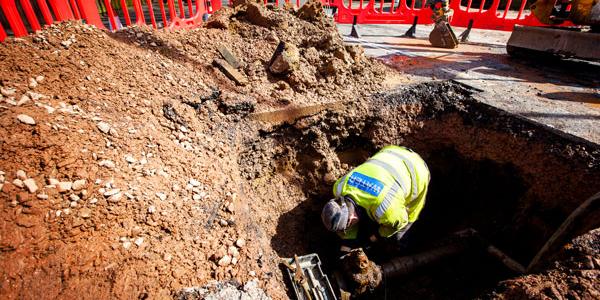Every month we point our spotlight at a different area of the CON29DW. This month it’s the turn of sewer adoption agreements.
It’s a common misconception that all sewers are owned by water companies. Whilst this would probably be the ideal situation for many, and is something which the government is steadily working towards (more of which later), it’s simply not the case. Most newly-laid sewers are actually owned by the person or company who laid them.
Usually, the owner of these sewers will want to transfer them to the relevant water company. Not only does this mean the owner is no longer responsible for their upkeep, it also means they’re in the hands of a company that has the legal powers, financial resources and expertise to maintain them.
With larger developments (typically ten houses or more), the normal method by which this transfer is achieved is via section 104 of the Water Industry Act (1991), commonly referred to as a Section 104 Agreement (or S104 agreement for short).
This is an agreement between the developer and water company that specifies the criteria of adoption. In short, the developer agrees to build the sewers to an agreed standard, and maintain them for a certain amount of time after the development is occupied, usually a few years. After this period, providing there are no significant problems, ownership will be transferred to the water company, who will then be responsible for the sewers going forward.
One common feature of S104 agreements is a bond. This is an amount of money (typically 10% of the cost of the sewerage network) that the developer pays to the water company at the commencement of the agreement. The water company will then hold this for the duration of the agreement, and use it should the developer default for any reason (such as going into liquidation) and not deliver a sewer network up to the required standards. This money would be used to complete the network.
It’s worth noting that many solicitors will try and obtain a copy of these agreements. Severn Trent’s policy has always been that S104 agreements are a confidential arrangement between them and the developer and, as such, they do not provide them to third parties. Many developers will provide them on request however, so we’d always recommend contacting them instead.

The adoption process has recently been complicated by the private sewer transfer, which took place in 2011. Under the transfer, the majority of sewers laid before July that year automatically became the property of water companies. This included sewers under S104 agreements. However, the transfer only included sewers which discharge into the public network. S104 agreements also cover surface water sewers, which carry rainwater from properties. Many of these discharge into watercourses or ponds. These were not included in the transfer, meaning there are developments where the foul sewers are owned by the water company, but surface water pipes are still under an adoption agreement. There are also developments where part was connected prior to July 2011, and adopted, and parts which were connected after, and are still private.
A further consequence of the transfer is yet to materialise. Under the government’s original proposals, following the initial transfer, adoption of new sewers would be mandatory, and would happen when sewers were first connected to the public network. However, along with other proposals (such as a secondary transfer for any sewers laid after July 2011), this has been indefinitely delayed.
An alternate way of adopting sewers is through another section of the Water Industry Act, S102. This is a retrospective agreement, which can be used to adopt existing sewers where no S104 agreement is in place. This is done at the owner’s request, and providing the water company is satisfied with the condition of the sewer, transfer is immediate. These are occasionally highlighted on our searches as being in the negotiation stage as, once the agreement is signed, the sewer immediately becomes public.
Should your search highlight the sewers are under an adoption agreement, you need to be aware that they’re not currently owned by the water company and that, if things go wrong, it’s not the water company who will be responsible for repairing them. There’s also the possibility that the developer will be unable/unwilling to repair sewers, or, should they cease trading, the homeowners could ultimately find themselves responsible for the sewers. We’d always advise checking who the developer is, whether there are any likely complications, and the probable timescale of adoption.
